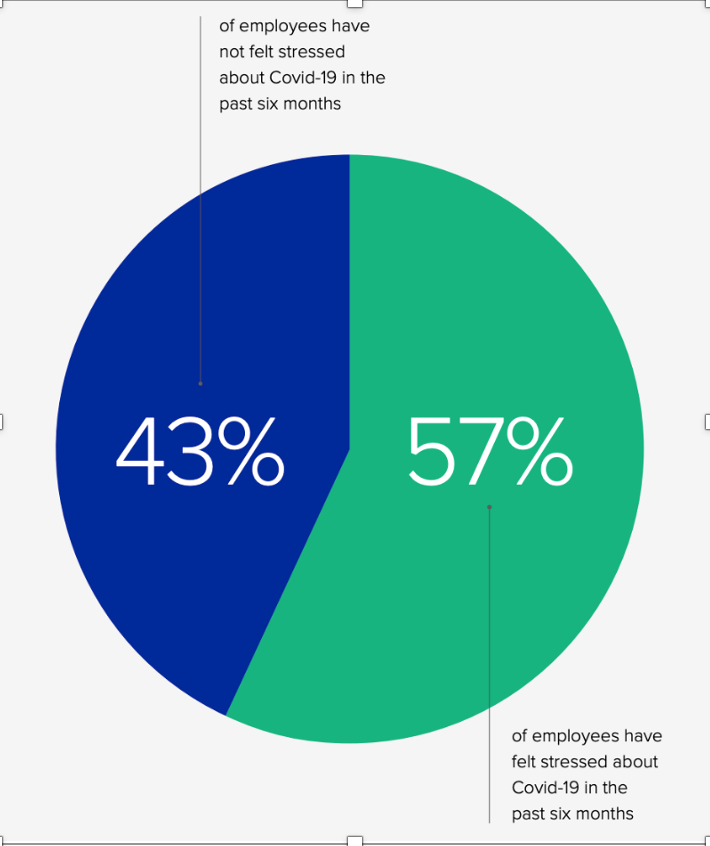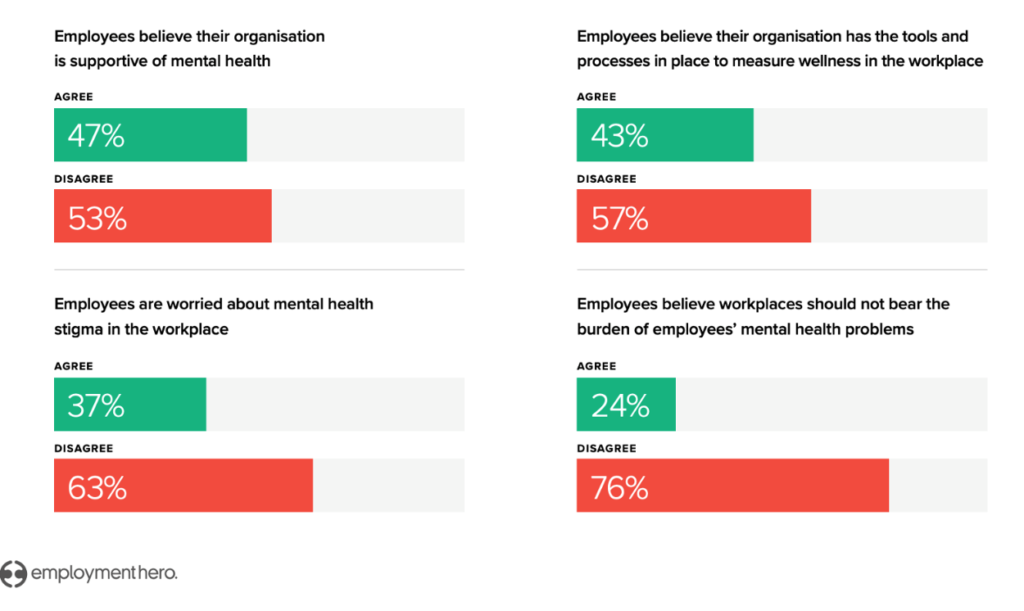
Impacts of Covid-19 on mental health in the workplace
September 24, 2021
The covid-19 pandemic is one of the largest events that many of us have seen in our life with a majority of people impacted in some way. Initially, the biggest concern was the impact on our physical health however as it drags on, mental health issues are increasing and having a direct impact on employees personally and in the workplace.
Changes in mental health undoubtedly spill into our working lives. As well as affecting the individual, poor mental wellbeing can result in a knock-on effect, impacting company productivity, morale and engagement.
Employment Hero recently surveyed over 5715 respondents during the first quarter of 2021 to see the impact of Covid-19 on employee and employer mental health in the workplace
They found that employees’ stress levels are high and it’s no surprise that they’re feeling worried about their physical, financial, and mental health. Continued lockdowns and restrictions placed on gym and training facilities could be the reason behind the increased worry around physical health, whilst job uncertainty and the end of Job Keeper could be the driving factors behind the increased worry surrounding financial wellbeing.
Overall, Australian employers believe they are supportive of their employees’ mental wellbeing, however only half (50%) of employers have the right tools and processes in place to measure wellness in the workplace. Employers are also aware that mental health stigma in the workplace is a worry, therefore it’s never been more important for employers to provide the right tools and processes to help employees manage their mental health.

Mental health has been adversely affected by exposure to:
- poor support
- poor workplace relationships
- poor organisational change management
- poor environmental conditions
- remote or isolated work, and
- violent or traumatic events.
When stress is very high and or prolonged it can in turn lead to work-related psychological or physical injury. For example, work-related stress may lead to depression and anxiety in the long term. Work-related stress has been linked with high levels of:
- unplanned absences including sick leave
- staff turnover
- withdrawal and presenteeism, and
- poor work and poor product quality
Initiatives such as R U OK? Day (Sept 9, 2021) can help break the stigma associated with mental health in the workplace, as well as general education surrounding mental health.

Support
- Check-in on staff and having one on one conversations is a good place to start and will give you an understanding of where each of your staff is at, mentally.
- Implementing an Employee Assistance Program (EAP) can help your team through difficult times. An EAP is a free confidential counseling service employers can provide to employees to support their mental wellbeing. While all EAP sessions remain confidential, you will be able to see how many employees are using the EAP program, giving you an indication of employee mental wellbeing in your workplace.
- There are a number of services available to people who are feeling depressed, stressed, or anxious. They include: Lifeline, Beyond Blue, and Black Dog Institute


